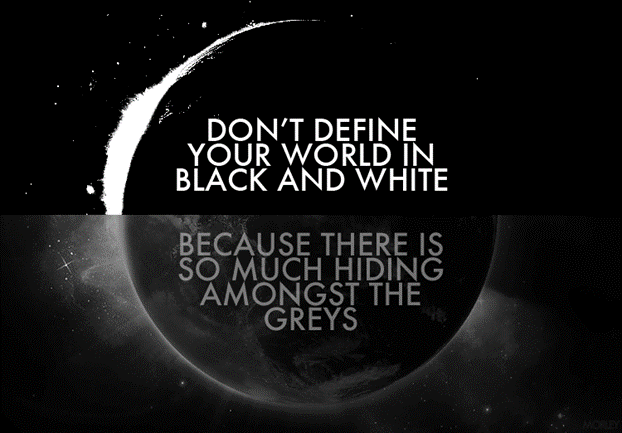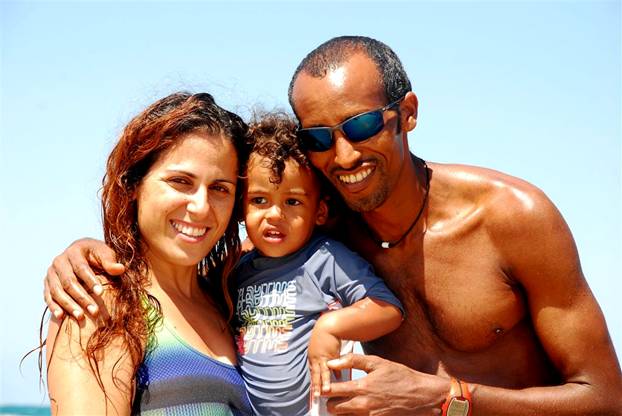
I have been doing diversity education for the last ten years. The more people I saw, the more I realized how important this work was. For some unknown reason, people like labels. They think that labels help them define the world. I believe they shrink the world, limit thinking and restrict our range of experiences.
When I was 21, I was greatly inspired by one of my psychology teachers at university. She came to class and asked us, “Who are you?” At first, we thought she was weird. Well, she was weird (at least this is how we labeled her), but the more we discussed this topic, the more we realized that this weird question was all about the labels we put on others to help us define ourselves.
In one of the classes, she asked me, “Ronit, who would you be if your parents gave you a different name?” I looked at her, unsure if I had understood the question. I was puzzled for a while, and then said, “Me!”
Divide and Conquer with Labels
In our psychology classes, we discussed identity and how the labels we give to everything around us limit the range of the experiences we have. At one stage, she told us to move around the room based on our labels. She asked all females to move to one side, all males to the other. Then, she moved us around based on other labels we are given in everyday life, like height, age, race, religion, the area of the country where we grew up, etc. It didn’t take us long to realize that labels divide us into groups, and when this is done, it is very easy to control us.

My sister has an Ethiopian partner (that’s them in the picture). When she brought him home to see my parents for the first time, my mom could see nothing but the color of his skin. When I called my parents to ask how it was to meet him for the first time, my mom was in a bit of shock. She said to me, “He is… black!”
I laughed and asked her again. Although she was laughing too, she said, “No, you don’t understand, he is black black”, as if saying black twice described him better.
You see, my brother in law, Gezachw, is a champion athlete and has amazing muscles. You can see his muscles as soon as you see him, but my mom never thought to say, “He has muscles”, because for my mom, who grew up in Iran, skin color defines people. She is very strong with labels, so for almost a year afterwards, when she told family members that my sister was going out with a man, she never forgot to mention, “He is black”. She never treated him badly or anything, but it sure was uncomfortable for anyone around when she said that.
Only when my nephew (the gorgeous baby in the photo) was born, my mom stopped mentioning the color as a way to define my brother-in-law.
My mom is still very strong with labels and often finds it hard to see beyond them. She is 75 years old and I have seen over the years how the labels she gave slowly limited her life.
My dad, on the other hand, was very different from the labels often given to men. He did housework, raised his kids, did art and needlework, cooked and cleaned. When my mom tried to give my only brother discounts on housework, my dad insisted that my brother share the load with all of us. Great dad! I admire him for it. He is 84 years old and still fights the social stereotypes.
Although my mom modeled racism and chauvinistic views, I adopted my dad’s philosophy on equality to the point of making it part of my professional career.
I think that all parents need to examine their own thoughts and feelings about labels and realize how much they narrow their thinking. I was lucky to have one parent who modeled courage to live life despite labels and I took this to my family life and work, but if I didn’t have him, labels would be limiting my life too.
As an educator, working with special education children, I often witness crimes against those children. Doctors, parents and teachers like to label: smart, stupid, hyperactive, friendly, sociopath, lazy, ADHD and the list goes on. Every day at work, I understand how much more we have to do if we want to stop conflict and war and refuse to be labeled.
Recently, I saw a video that highlights the issue of labeling in a magnificent way. If you are a parent, show it to your children. If you are a teacher, show it to your students, so we can stop labeling others and refuse to live by other people’s labels.
Make sure your children broaden their life without labels.
Be happy,
Ronit
No posts found








